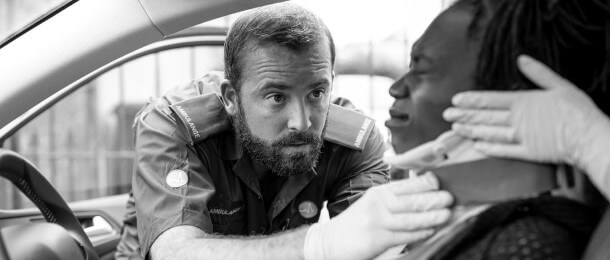News: 3 firefighters hospitalized after Hwy 47 crash in Uxbridge
UXBRIDGE, ON – Three firefighters were sent to a hospital after a crash on Highway 47 in Uxbridge on Monday,...
Weather-related car accidents is any accident caused by adverse weather conditions, such as snow, heavy rain, ice, fog, and strong winds, which can make it difficult for drivers to remain in control of their vehicles. According to the Workers’ Safety and Compensation Commission (WSCC), nearly 30% of car accidents in Canada occur on snowy or icy roads, with more than 50,000 accidents annually caused by winter precipitation.
Bad weather conditions can greatly impact road safety, leading to weather-related car accidents. While adverse weather conditions contribute to crashes, drivers are ultimately responsible for adjusting their driving behaviour to ensure safety. In motor vehicle accidents caused by bad weather, insurance companies and police officers assess whether the drivers involved used reasonable caution under the circumstances.
Liability in weather-related conditions depends on multiple different factors, including driving speed, road conditions, vehicle maintenance, and driver negligence. Even when poor visibility, slippery roads or icy roads contribute to an accident caused by adverse weather conditions, drivers must exercise caution and adapt their driving to the weather.
In icy conditions or poor road maintenance situations, failing to leave a safe following distance may cause rear-end collisions.
Driving too fast for bad weather conditions increases the risk of losing control and causing a car accident. Even if a driver was within the posted speed limit, they could be held responsible if they were travelling too fast for hazardous weather.
Not paying attention while driving is not a safe idea, especially when their are bad weather conditions. Drivers involved in an accident caused by adverse weather may found at fault if they were distracted and failed to take necessary precautions.
In icy conditions, a driver using worn-out tires may struggle to stop in time, which can lead to a vehicle collision. Many insurance companies recommend winter tires for improved grip in adverse weather conditions.
Bad weather conditions can increase the risk of car accidents, and understanding how to file an insurance claim after a weather related accident is crucial. Whether your vehicle collision was due to icy roads, heavy rain, poor visibility, or black ice, your insurance provider will assess the weather conditions and driver negligence to determine liability and coverage.
Contact your insurance company as soon as the accident occurs.
Provide details about the weather related accident, including road conditions, precipitation levels, and visibility issues.
Take photos of the scene, showing slippery roads, ice patches, or foggy conditions that contributed to the crash.
Collect witness statements if other drivers were involved or bystanders saw the accident.
Secure a police report, as law enforcement can verify whether adverse weather conditions played a role.
Insurance companies will assess whether the accident was caused by adverse conditions or if a driver’s negligence played a role (e.g., unsafe speed, worn out tired, or distracted driving).
Some policies include coverage for weather related accidents while others may deny claims if the driver was ultimately responsible for not adjusting to inclement weather conditions.
Collision coverage helps cover damage to your car, even if the weather or road conditions were to blame.
Comprehensive insurance coverage damage from falling trees, hailstorms, or flooding caused by adverse weather.
Driving in bad weather conditions increases the risk of a car accident, but taking the proper precautions can help prevent collisions caused by snow, heavy rain, icy patches, fog, or poor visibility. Below are essential safety tips to keep you and others safe on the road:
1) Reduce Your Speed
2) Use Proper Equipment
3) Stay Focused
4) Avoid Cruise Control
5) Be Prepared for Emergencies
6) Main Proper Visibility
If you’ve been involved in a weather related car accident, determining who is at fault can be complex. Inclement weather conditions can make it difficult to prove driver negligence and hold the at fault driver responsible. Consulting an experienced car accident lawyer can help you navigate the legal process and ensure you receive the compensation you deserve.
To help Determine Liability: A lawyer can help gather evidence to prove who is at fault at the time of the accident.
Aid in Filing an Insurance Claim: Dealing with insurance companies can be challenging, especially if they try to minimize payouts. A lawyer can help negotiate a fair settlement.
Protect Your Rights: Whether the accident occurred due to black ice, poor road conditions, or driver negligence, an attorney will ensure your case is handled properly.
Recovering Damages: A lawyer can help you seek compensation for medical expenses, lost wages, vehicle repairs, and pain and suffering.
If you or a loved one have been injured in a bad weather car accident, speaking with a personal injury lawyer can help you take the necessary steps to protect. Schedule a free consultation with our highly experienced lawyers at Grillo law to discuss your case.

Blog
UXBRIDGE, ON – Three firefighters were sent to a hospital after a crash on Highway 47 in Uxbridge on Monday,...
HAMILTON, ON – A crossing guard was killed in a crash involving a trash truck in the Hill Park area...
BRAMPTON, ON – A man was left in critical condition as a result of a pedestrian crash that happened along...

Request a free consultation!
Call us today for a FREE consultation regarding your accident benefits claim.
Call: +1 855-225-5725
You will not pay any fees
until your case is won or settled
REQUEST A FREE CONSULTATION!
You will not pay any fees until your case is won or settled.
Thank you!
Amet minim mollit non deserunt ullamco est sit aliqua dolor do amet sint. Velit officia consequat duis enim velit mollit.